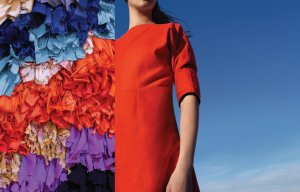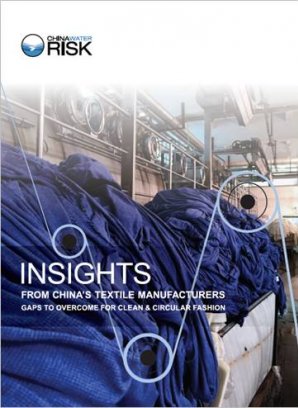
Setting new responsible viscose standards for circularity
This is a unique time for the fashion industry as the goals of Chinese textiles manufacturers and fashion brands are converging.

30th August 2017
Knitting Industry
|
Stockholm
“China Water Risk has long worked to highlight water risks from the dirty, thirsty and wasteful fashion industry. With many of these risks now being realised, we are focusing on the solutions and opportunities. We are therefore very pleased to be working with the C&A Foundation on this project, which aims to advance the shift to a clean and circular business model,” said Debra Tan, head of China Water Risk.
“C&A Foundation is excited to partner with China Water Risk to support this study given its extensive expertise on the topic of water in China’s industrial sector, notably textiles and apparel. We hope that this report will support this transition to a circular apparel economy to enable other industry actors to identify and further scale up practical solutions to more quickly bring about a circular economy,” commented Ilan Vuddamalay C&A Foundation Programme Manager.
The report Insights From China’s Textile Manufacturers: Gaps to overcome for clean & circular fashion analyses the insights collected from an online survey of China’s textile manufacturers. China Water Risk conducted the survey to find out why, despite the mentioned goal convergence, the shift is not happening as fast as it could. Manufacturers were targeted as less is known about their actions compared to brands.
To gain honest insights the survey was anonymous and was well received with over 140 responses in just three weeks. 85 of the responses were complete and analysed in the report. These 85 come from a wide range of regions and factory types.
The survey found that manufacturers are largely on track on going clean and tackling their water risks, as well as starting to move circular. Indeed, 98% say they are taking actions to be green, 74% are recycling water, 88% have upgraded their wastewater equipment and 84% upgraded equipment for chemicals. As for the circular economy, 72% see business benefit in moving to it.
While manufacturers are clearly moving towards the clean and circular model, the survey found they still face significant regulatory, operational and reputational challenges, as well as knowledge gaps.
“Our survey identified three overarching wishes from manufacturers to help overcome their challenges. They are: 1) more training, 2) more help with sourcing, and 3) more financial support. However, the underlying issue common to all of their challenges and wishes is how to be compliant within the current low-price business model,” said Dawn McGregor, project leader.
The survey found that costs are rising but prices offered by brands/sourcing agents are not reflecting this and so already thin profit margins are being squeezed further. These insights raise the fundamental question of whether the current business model is sustainable.
Both China Water Risk and the C&A Foundation hope that this report will support the fashion industry to fast track the transition to a circular apparel economy by raising awareness of manufacturers’ needs and enabling actors to further identify practical solutions.

Business intelligence for the fibre, textiles and apparel industries: technologies, innovations, markets, investments, trade policy, sourcing, strategy...
Find out more